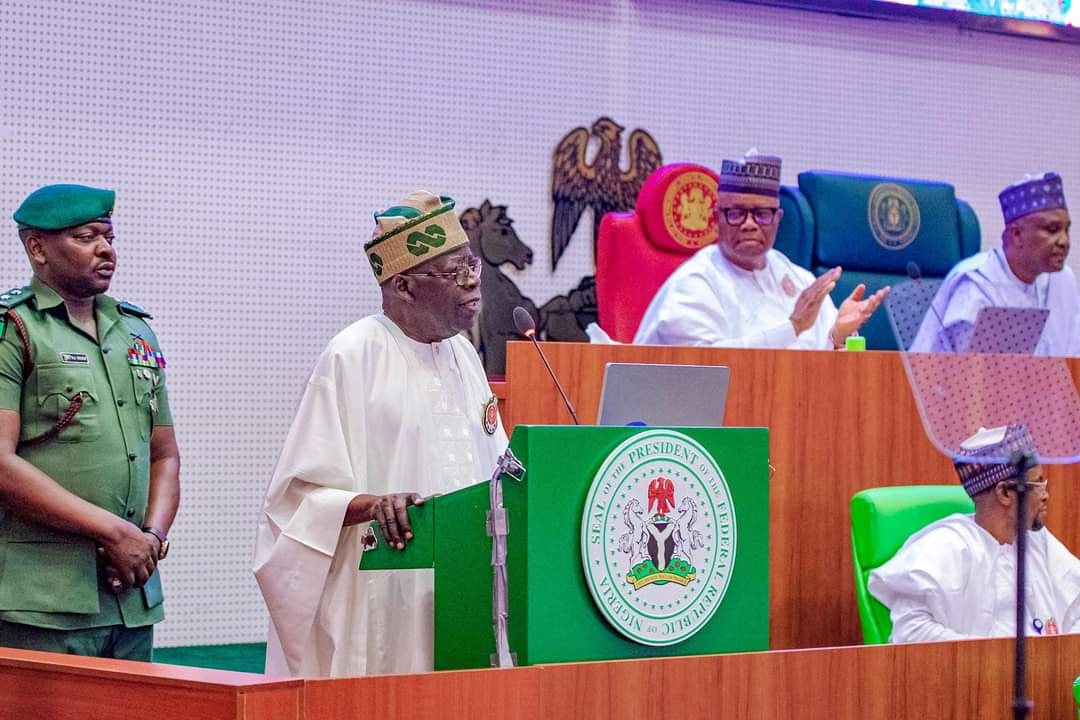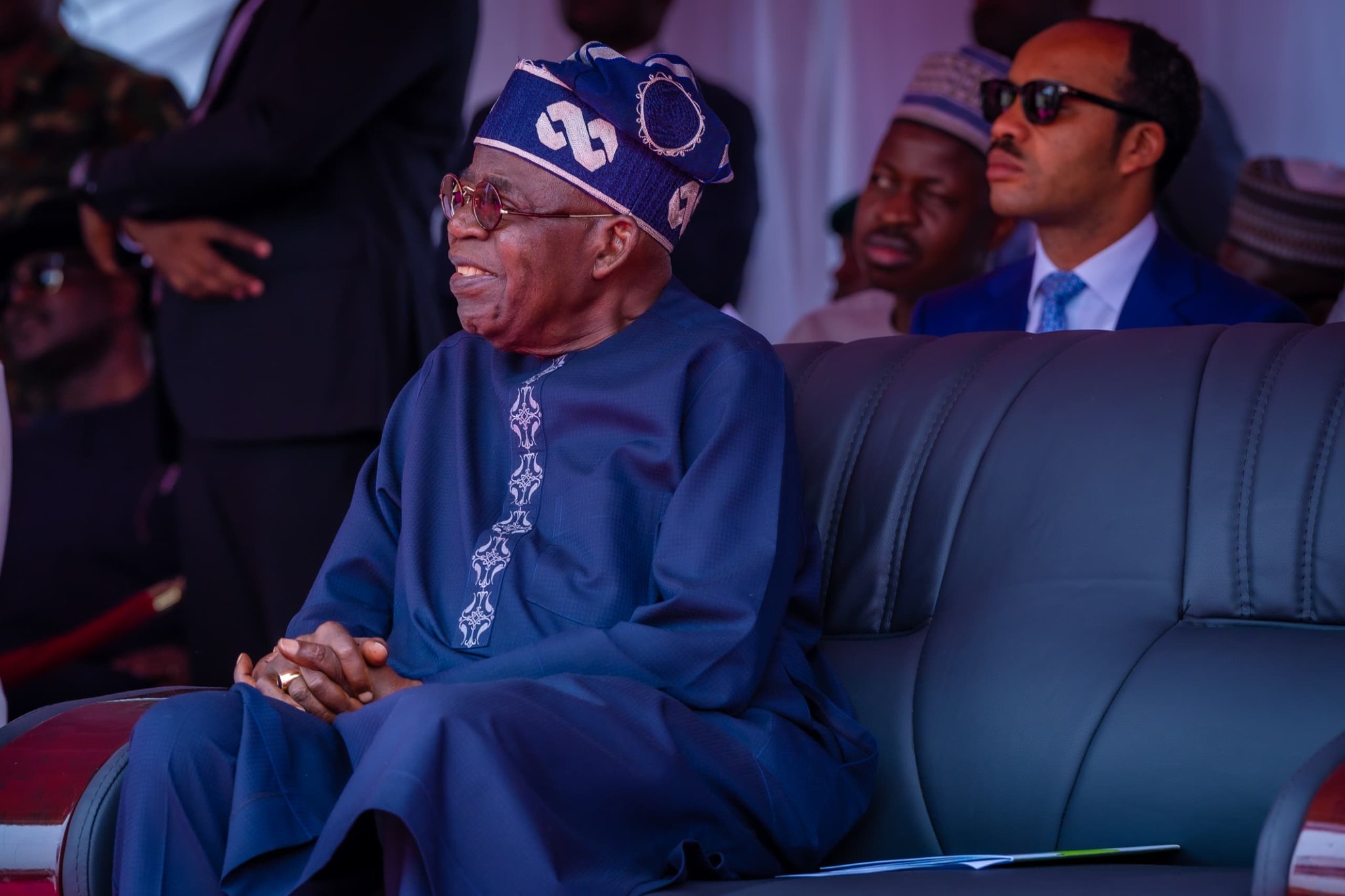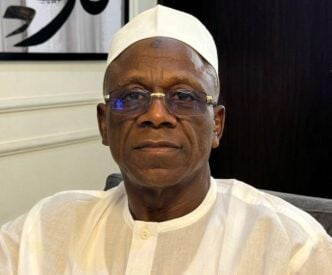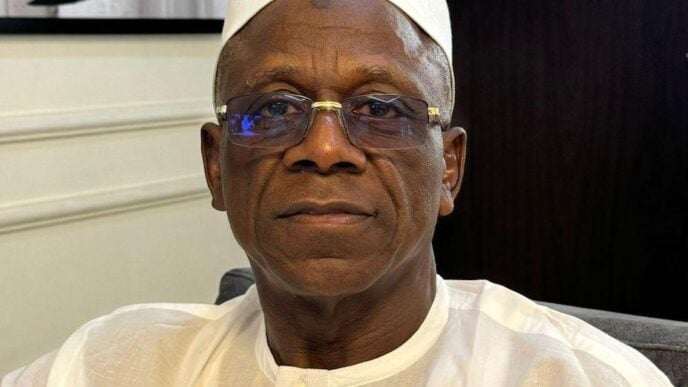What’s in a national anthem? Plenty, it would seem. The anthem is more than tune and lyrics. A few years ago, the American academic Bruce Gilley wrote an article in an academic journal in which he advocated the return to colonial rule for those nations that were previously under that form of imperialism. He argued that recolonisation would be better for these nations.
Due to the ferocity of objections the article was later withdrawn from the journal in which it had been originally published. Now Nigerian legislators and the Tinubu government have heeded Gilley’s call and decided to begin that process of reverting to colonial rule, by changing the nation’s anthem.
In 1960, Independence Day, to the strains of a tune by Frances Berda, and words by Lillian Jean Williams, the new national anthem – Nigeria We Hail – was played as the Nigerian Flag was hoisted as the British flag was lowered. There was nothing wrong with the musicality of the anthem or indeed the lyrics – although some have objected to the certain words like ‘tribe’ and ‘native land’ What was wrong with the old national anthem – now the new national anthem – was that it was, like the Nigerian State itself, a colonial invention. In the succeeding years after independence Nigeria embarked on a series of decolonisation process in which symbols of colonial rule such as institutions and infrastructure that bore colonial names were changed to indigenous names. The logic of this move was clear and eminently sensible. A nation could not reject colonialism whilst keeping the very cultural instruments and symbols of that rule. For example, Carter Bridge in Lagos was changed to Eko Bridge. The problem, however, is that not everything could be changed. Colonially named streets such as Boudillon, Mahoney and other similarly named Streets in Ikoyi remain unchanged. But why did the names of these streets not changed alongside other changes that occurred after independence? Many reasons can be cited but another logic perhaps might explain it; and that is the logic of colonial mentality.
Carter Bridge, for example, was a public infrastructure that carried a great attachment with colonial past but its coloniality was also impersonal in the sense that it did not attach to ant particular interests. For example, Julius Berger, Nigeria’s chief engineer, has its name on many infrastructural constructions and that has not generated any clamour for change.
Advertisement
However, Bourdillon Road, Maloney Street and others which, although deeply colonial in origin, remain unchanged. But why is this the case? The reason is that these streets carry still the prestige, the opulence, the exclusivity, the elitism of the lives of those who once lived on those streets. Some of those who once wielded power and ruled over Nigeria occupied properties on these streets. So, if Bourdillon Street were to be changed to say, Bola Ahmed Tinubu Street, it loses its history and the associated opulence of that past that the street resonates. Yet, that colonial past was a past written in the ink and practice of oppressive subjectivity. This dilemma has not left the African psyche.
Yet, some of these colonial legacies needed to be changed, which is where the national anthem came under scrutiny in 1978. Lillian Jean Williams and Frances Berda were white expatriates living in Nigeria and were associated with colonial rule. It seemed inappropriate for these women to compose the Nigerian national anthem. It was like having your newborn child named by a foreigner who knows nothing about the cultural significance of names or the depth of feeling that attaches to act of naming. It was therefore thought by a national consensus that the national anthem should be changed. So, a competition was organised to find the best new and most appropriate composition for an anthem for the nation and Arise o Compatriot was born.
Now, the Nigerian legislature in its infinite wisdom has decided that this new anthem is not fit for purpose and so in record time it rushed through this legislation for a change on anthem, which was endorsed by the president.
Advertisement
To the fury and criticism of many Nigerians, the old national anthem is now the new national anthem. It would now seem that in Nigeria, in order to move forward, one must move backwards or rather to progress is to regress. But it is not that progress cannot look to the past to learn a clearer path towards the future but rather that progress looks to return to a dark and depressing past.
One of the main criticisms of this move by the legislators is that the national anthem is not a pressing national matter of concern, a problematic issue for the majority if the population. This criticism although reasonable is an error.
While many Nigerians are confronted with the pressures of life, the pressing problems of hunger and poverty, of deficient healthcare provision, of lack of power supply, of bad roads and general security concerns, the national anthem does not make it on to the list of their concerns. However, for the legislators who are free of these various malaise and existential crises, the anthem is indeed a matter priority. If a man does not or need not have to worry about the next meal and where that will come from or worry about how to take care if his sick mother, or how to pay his child’s fees, then he has time on his hands to worry about tunes and words and anthems. Remember that Nero fiddled while Rome burnt. A man’s perspectives on life are different when he has little to worry about. He sees rainbows where others see dark clouds heavy with hailstones which when they fall, would batter their roofless shelter. Priorities differ when you reside on opposite sides of the poverty divide.
But more pernicious with regards to this change of anthem is not even the lack of consultation with the people but rather the coloniality of the move. This is in the sense that it is a move that is reminiscent of colonial imposition that Nigerians fought so hard to resist. It is bad enough for the dog to return to its vomit but twice worse for it to return to other people’s vomit and lap with up by making it law.
Advertisement
Nigerian legislators and the government have undone what took decades to achieve. Their hyper myopia has blinded them to the destructive act that they have visited on history as they dance to a different tune on the tombs of those who fought for freedom.
So, while – Nigeria we Hail Thee, we can only hope and pray that The Labours of Heroes Past Shall Never be in Vain, and that To serve with heart and might, a nation born in freedom, peace and unity’ – is an ideal sentiment that will never depart from the hearts of Nigerians even while they sing the old colonial words to colonial tunes.
Views expressed by contributors are strictly personal and not of TheCable.
Add a comment








